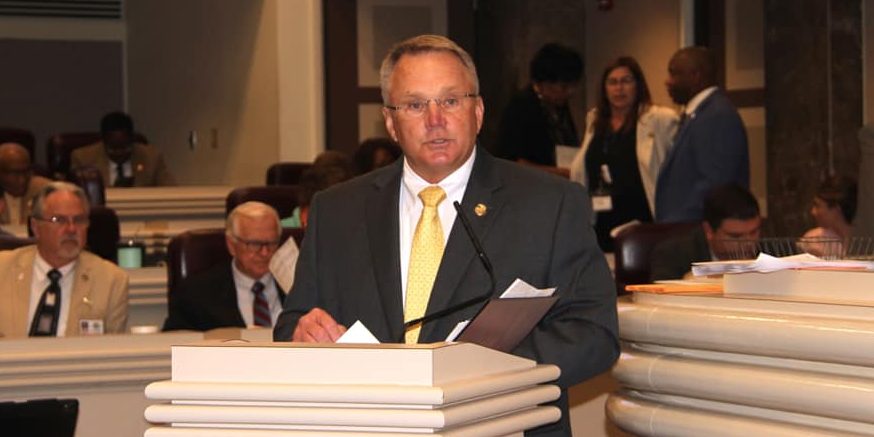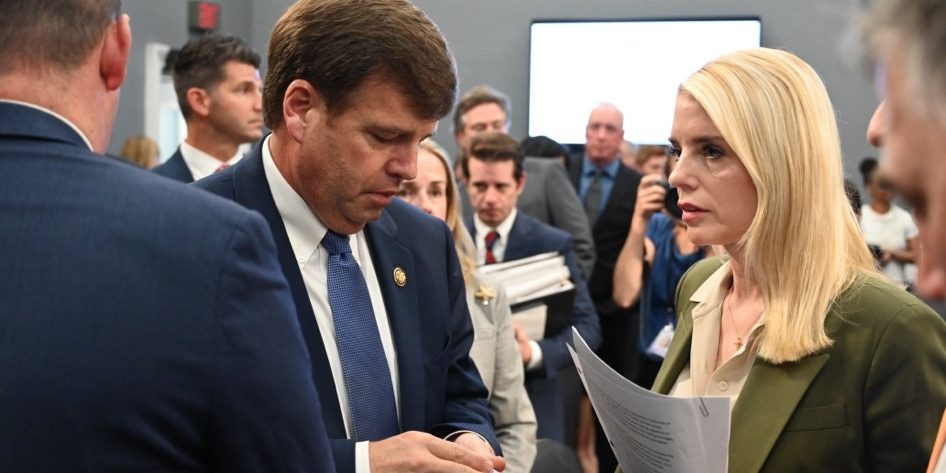MONTGOMERY – Though their state capitals are several hundred miles apart, Alabama and Virginia joined forces to combat the fentanyl epidemic ravaging communities across the country.
In a historic partnership, Gov. Kay Ivey and the state of Alabama partnered with the state of Virginia to participate in Operation Free, an enforcement initiative which began Sept. 15 and ended Thursday.
During Operation Free, which included State Rep. Rex Reynolds and U.S. Rep. Dale Strong as members, the Alabama Law Enforcement Agency’s State Bureau of Investigation and officers with the Alabama Drug Enforcement Task Force seized over 48,800 grams of illicit drugs, including 1,700 grams of fentanyl.
“The fentanyl epidemic in America is one of our gravest threats, and we are doing all we can in Alabama to battle it and protect our citizens. I am proud to join Virginia Gov. Glenn Youngkin in Operation Free to help tackle this nationwide danger,” said Ivey. “Fentanyl can rob our people of their futures, so we will continue fighting to make sure this deadly drug is not a killer in Alabama.
“A safe Alabama is a secure future for Alabama, and a secured future is our goal.”

Ivey and the Alabama Legislature have made significant strides to combat the fentanyl crisis. Reynolds (R-Huntsville) highlighted the state’s efforts to fight trafficking, educate students on the dangers of fentanyl and support recovery.
“Operation Free perfectly aligns with the state of Alabama’s ongoing efforts to fight the opioid and fentanyl epidemic,” said Reynolds, a former Huntsville police chief. “In the last three legislative sessions, Alabama has made significant progress in equipping law enforcement to fight fentanyl traffickers by imposing the stiffest penalties in the nation. Additionally, we have mandated fentanyl education curricula in our public schools through the Price Hornsby Act and invested heavily in substance abuse treatment.
“Every bit counts when it comes to saving lives, and I look forward to our continued efforts to protect the people of Alabama.”
Strong, who represents Alabama’s Fifth Congressional District, has served as a first responder in Monrovia, outside Huntsville.
 “As a (long-time) first responder, I have personally worked over 300 drug overdose calls,” said Strong (R-Monrovia). “The devastation of this epidemic continues to grow as we see other dangerous drugs laced with fentanyl. This deadly drug is pouring across our Southern Border and wreaking havoc in our communities.
“As a (long-time) first responder, I have personally worked over 300 drug overdose calls,” said Strong (R-Monrovia). “The devastation of this epidemic continues to grow as we see other dangerous drugs laced with fentanyl. This deadly drug is pouring across our Southern Border and wreaking havoc in our communities.
“As a member of the Committee on Homeland Security, I believe securing the border is one piece of the puzzle to end this epidemic. On the local level, we must equip law enforcement officers, fund recovery efforts and educate our people. I’m proud to join Operation Free to continue seeking ways to stop the spread of fentanyl.”
Fentanyl, a potent synthetic opioid, has become an increasingly significant threat, endangering the lives of citizens, law enforcement officers and first responders alike. In 2023, the U.S. Drug Enforcement Administration seized more than 80 million fentanyl-laced fake pills and nearly 12,000 pounds of fentanyl powder. The 2023 seizures are equivalent to more than 390 million lethal doses of fentanyl.
“Public safety is a shared responsibility that transcends state lines. We were proud to join our state counterparts during Operation Free and will continue to take proactive measures to protect our state from the destruction and the increasing concern caused by fentanyl,” said ALEA Secretary Hal Taylor. “Through the leadership of Governor Ivey and joint initiatives such as this, we are able to work with all of our partners and make our communities safer to ultimately help eliminate this dangerous drug.”
In Fiscal Year 2022, Special Agents with ALEA SBI seized a total of 8,300 grams, which is equivalent to 8,300,000 lethal doses – enough to kill more than the entire population of Alabama. In Fiscal Year 2023, ALEA seized 18,500 grams of fentanyl.
Alabama’s continued commitment to combating this crisis is evident through the establishment of specialized units such as ADETF and more recently, the Metro Area Crime Suppression Unit (MACS). The ADETF is comprised of ALEA and 47 local agencies, each having investigators sworn as state agents under ALEA’s SBI.
The Task Force’s primary focus is to assist local communities with narcotics enforcement with resources not commonly available in these areas, along with targeting middle to upper-level drug trafficking organizations.
More recently, MACS was established in collaboration with ALEA, the Alabama Attorney General’s Office, the Montgomery Police Department, the Montgomery County Sheriff’s Office and the Bureau of Alcohol, Tobacco, Firearms and Explosive, to confront and reduce violent crimes as well as drug-related incidents in Montgomery and surrounding areas. In August, the MACS unit seized enough Fentanyl to kill more than 5,000 people during one detail.
This multi-faceted approach was not just about enforcing the law; it’s about saving lives and fostering healthier communities, including Alabama’s incarcerated population.
The Alabama Department of Corrections is constantly battling the war on contraband, which includes fentanyl. Controlling the flow of illegal contraband has a direct impact on inmate violence and deaths. Contraband is big business in every prison in the country. The transactions, indebtedness and ultimate drug abuse results in escalated violence among inmates.
However, organized criminal activity relies on a constant supply chain. With ADOC continuously disrupting that supply chain, criminal enterprises are disrupted causing competition with other criminal enterprises, resulting in escalated inmate violence.
The ADOC Law Enforcement Services Division, with the assistance of outside agencies, has ramped up its efforts to stem the flow of contraband in and out of the state facilities.
“The ADOC is committed to enforcing its zero-tolerance policy on contraband, even when it comes to policing our own,” said Corrections Commissioner John Hamm.











